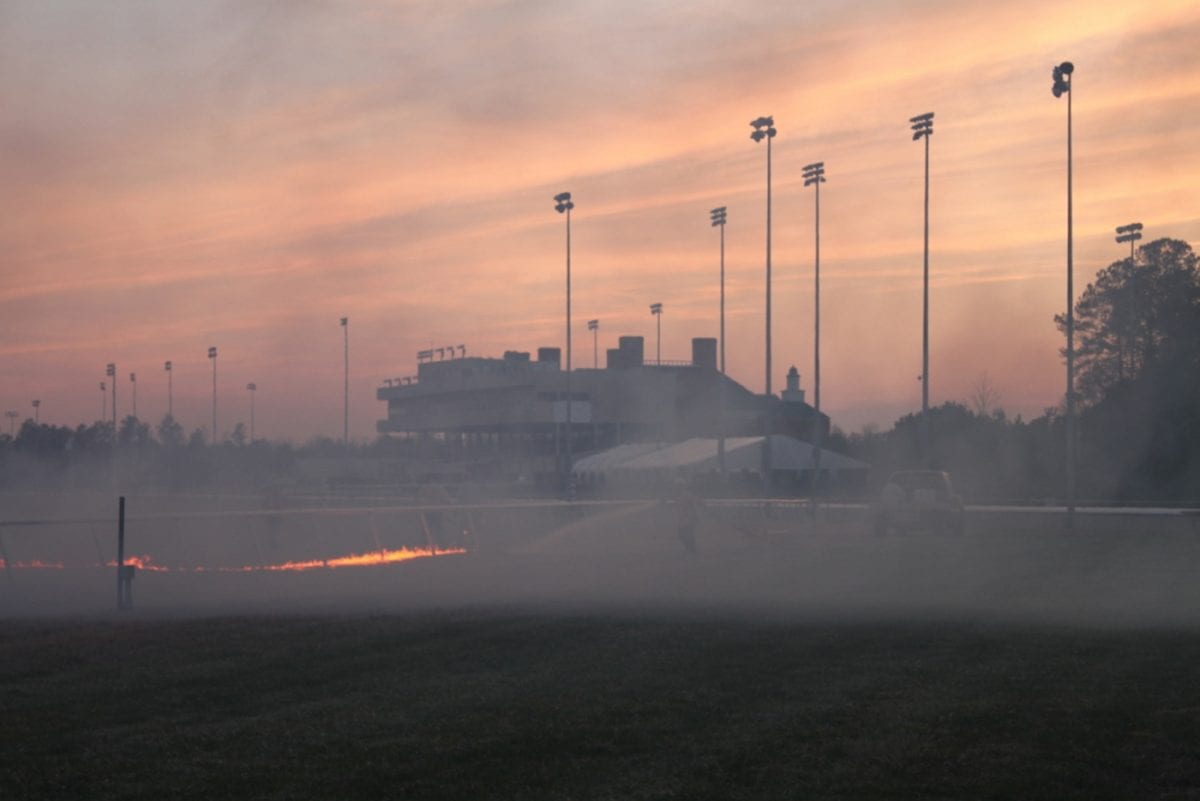Over the weekend, multiple sources suggested that the dispute over racing days in Virginia would head to court this week.
They were right.
The Roanoke Times reports (here) that the track said Monday it will take its case to the Richmond Circuit Court rather than acquiesce to a Virginia Racing Commission directive that it sign a contract with the horsemen by July 1.
The Commission last week had issued an either-or order: either the sides sign a contract by July 1 clearing the way for off-track wagering facilities to reopen immediately and providing for an eight-week meet, with 24 days of live racing, in 2015 with no live racing in 2014; or abide by the Commission’s earlier order to run 25 days of live racing over five weeks in 2014.
Frank Petramalo, executive director of the Virginia Horsemen’s Benevolent and Protective Association (VHBPA), which represents the state’s horsemen, has said that his group would support either alternative.
Colonial Downs, however, wants what it calls “high quality racing,” which it defines as a very short meet with very high purses. The company has proposed multiple options during the dates impasse, which has dragged on now since December. Those options generally shared a couple of essential features: a very short period of high-end racing centered around the Virginia Derby and a smattering of additional days spread out over several months, with no stabling or training at the track.
“The court will evaluate whether the racing commission acted properly,” Colonial’s president and chief financial officer Ian Stewart told the paper.
That said, it is unclear at this time the viability of the case. Virginia’s enabling legislation grants the state Racing Commission broad authority to regulate the sport and specifically provides it discretion to determine how many days of live racing should be conducted. According to the law, the Commission “shall require the holder of an unlimited license [which Colonial has] to schedule not less than 150 live racing days” except that it can alter that number based on “what the Commission deems to be in the best interest of the Virginia horse industry.”








I am surprised that the Virginia Thoroughbred Industry advocates have not filed a lawsuit seeking damages against the race track owners on behalf of Virginia bred owners. This is the worse possible situation of a Virginia bred owner; race track owners trying to marginalize their racing activities and Thoroughbred industry advocates that are not aggressive enough in dealing with these scoundrels. This is indeed a no win situation for Virginia bred race horse owners.